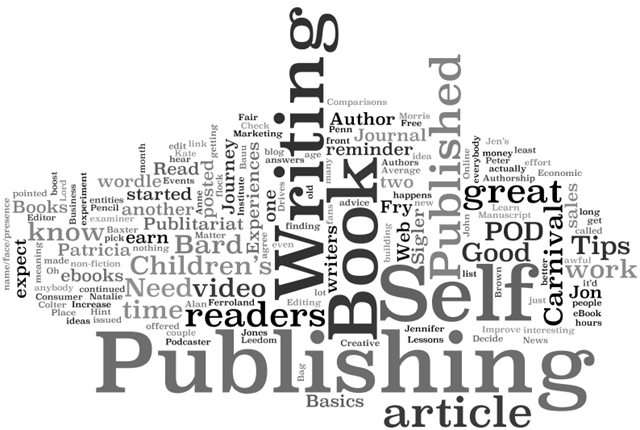Rasana Atreya is the author of Tell A Thousand Lies (shortlisted for the 2012 Tibor Jones South Asia prize), The Temple Is Not My Father and 28 Years a Bachelor. UK’s Glam magazine calls Tell A Thousand Lies one of their ‘five favourite tales from India.’ Valley Isle Secrets is her first foray into fan fiction set in the USA. Website.
Vanity publishing has arrived at publishing conferences and literary festivals, and this should be of great concern because vanity publishing is less about emulating trade (also called traditional) publishers, and more about convincing gullible authors to pay for services they do not need. Aspiring authors attend these conferences and festivals. The more they hear about these publishers, the more it gets legitimized in their minds.
You, as an author, owe it to yourself to be well informed. There is plenty of good information available on the Internet. Plenty of bad information, too. Learn to tell the difference. If you want to be a published author and have your book available for sale – either submit to trade publishers, or self-publish. If all you want is print copies of your book, go to your local printer. It works out much cheaper, and you also retain rights to your books. Stay away from anyone who wants money to publish you.
I cringe when vanity publishers call themselves ‘self-publishing’ companies. When you take the ‘self’ out of self-publishing, i.e. you – the author – do not upload the book yourself, it is no longer self-publishing. All that remains is vanity publishing.
I was a panelist on the nuts and bolts of self-publishing on Sept 12, 2015 in PublishingNext, Goa. This post is a combination of my take-away from there (a fabulous conference, btw), my comments as a panelist, and also my own impressions.
It getting harder for UK- and US-based vanity publishers to get naïve authors to fall for their ‘publishing packages’ – which can run into tens of thousands of dollars. This is thanks to activism on behalf of authors by platforms like Writers Beware and Preditors & Editors. As a result, vanity publishers have moved operations to Asia and Africa. That includes India, of course.
During my session, a lady from a self-publishing company took exception to my comments, saying it was unfair to malign vanity publishing because it is just another business model.
Here are reasons why I think vanity publishing is more than ‘just another’ business model and is, in fact, author exploitation:
- Unethical behaviourIn this new world of self-publishing and digital selling, many trade publishers are struggling to survive. As a result they are coming up with their own versions of vanity publishing, no matter what they call them – subsidy publishing, self-publishing platform or custom publishing.This is unethical and exploitative in my opinion because packaged ‘publishing’ offers from these vanity publishers go out under the letterhead of their trade publisher owner, leading authors to believe – erroneously – that if they signup with this vanity publisher, somehow they are being endorsed by the trade publisher.I know of cases where vanity publishers hound authors who contact them. If the authors don’t sign up, they are threatened via email and phones with messages like: I’ll make sure you’re never published again. The naïve author falls for this and parts with both his/her money as well as rights.
- Lack of transparency. They don’t tell you upfront what services you’re paying for – no breakdown of costs associated with editing, book cover designing, ebook and print book formatting. In addition, they grab all rights with no rights reversion clause.When I mentioned that point, the self-publishing lady resorted to sarcasm. “Aren’t authors educated?” she demanded. “Can’t they read a simple contract for themselves?”This is like saying that since I’ve been to college for an engineering degree, I should be able to do a doctor’s job. Because both are education, right?
Authors are not trained IP (intellectual property) lawyers. They do not possess the specialized knowledge required to evaluate a legal publishing contract.
- Charging hefty amounts for what can be done for free. Many vanity publishers will make grandiose claims of providing ‘world wide’ or ‘global’ distribution. Uploading to Amazon alone will make your book available in multiple markets. ebook aggregators likesmashwords.com (and the newly launched, India-based instascribe from pothi.com) will also distribute your books to multiple platforms. Then there are iBooks, Nook, Kobo. None of these platforms require any sort of fee. You upload your book for free. These platforms make money only when someone buys your book. No matter where you upload – Amazon, smashwords, Google Play, Kobo, iTunes etc – there is never any expense upfront. The retailers make money only when you do.
- Rights grabThere is another danger to having someone else upload your book. If they create an account in their name and upload your book, they become your publisher. If you upload your book yourself (ebook or printbook), you become your own publisher.Whoever is the publisher on record gets access to the dashboard. This is the place you upload the book, set the price, track the number of books sold, and also accept payments for books.Vanity publishers own your ISBN too, so they’re the publisher on record.
They grab all rights they can, even if they have no intention of trying to sell them for you. They rarely have rights reversion clauses.
If you’re lucky, there might a clause saying your rights will revert to you if the book goes out of print. If you do ask back the rights, they’ll point to the ebook available for sale and tell you that your book is still in print. Even if it hasn’t sold a single copy.
- Empty marketing plans10,000 Facebook fan page likes! 10,000 twitter followers! Press reviews to X number of news outlets! Free video trailers!Facebook fan page likes: there are ‘click farms’ in places like India (unfortunately!) which employ workers whose job is to click on ‘likes’ of their clients for as little as Rs. 2 (approximately 1 cent) a like. With Facebook limiting the number of fans who can view your posts (because they want you to pay to increase your reach), it doesn’t make sense to fill your page with fake likes.Twitter followers: if your followers don’t care what you have to say, you might as well not have any.
Press release: unless you have a unique angle, news outlets will not care. They get tons of such press releases.
Video trailers for your book: by some estimates a 100 videos are uploaded each hour to YouTube alone. Unless it has the combination of compelling content and exceptional marketing behind it, chances are it will not go viral.
- Falsifying salesI’ve had people come up to me with stories of how they know for sure they’ve sold X number of books to friends and family, yet the vanity publisher claims there were no sales at all. This could be avoided if the author had uploaded the book themselves, thereby gaining access to the dashboard.
- No incentive to marketThe vanity publisher has already made their money by charging you upfront, so there is no reason for them to put in any effort on your behalf. Instead, they encourage you to put in the effort. When you do, they get a cut from those royalties as well (assuming they are reporting accurately).
- No risk for the vanity publisherTrade publishers don’t charge you to publish your book. Because they are taking a risk on you, they take a cut in your royalties. Vanity publishers not only take a cut (or all of it, sometimes, when they don’t report sales), they also charge you a large sums of money. When I asked the self-publishing lady from my panel’s audience what her risk was, she had no answer.
- Sell you your own booksAt the PubNext conference a publisher who is launching yet another vanity publishing company said a little condescendingly that if authors don’t believe enough in their own work to buy copies of their book, why would anyone else?Imagine a builder constructing an apartment complex, then paying someone huge sums of money to take it off their hands. And, if they want a couple apartments, they have to pay to buy them back. This was the first thing that came to me when when I heard the above.The author puts in countless hours to create a product. Then, instead of expecting to make money off it, they have pay the vanity publisher for their own book – just to prove they stand behind their work? Stay away from such ‘deals’!
- Packages for editing, formatting and book coversAsk for a break down of costs.If you have a book of 100,000 words and seek out freelancers, expect to pay Rs. 20,000 – 25,000 for editing, and Rs. 5000 for a book cover, Rs. 1000-3000 for ebook formatting. So a total of under Rs. 35,000 ($527). Leonard Fernandes from Cinnamon Teal (a Print-On-Demand – POD – company) tells me that his costs are even lower.Services should be paid for with a one-time fee (when the author engages services for hire) or with royalties (trade publishing model) — but never both.
- Indian Writers BewareFor US-based vanity publishers you can Google them or contact a Better Business Bureau to see if they have complaints registered against them. In India we do not have as much awareness or internet-based activism. Another problem is these companies frequently change names. You may not recognize them by name. Learn to distinguish them by their unethical practices.
If you are overwhelmed by it all, check out reputable companies like Cinnamon Teal andpothi.com who offer services for a reasonable fee, with no rights grab.
If you want print copies of your book, and it will be only for local consumption, get it printed locally at a printer. If you want it for sale online on Amazon, flipkart etc. you can check out Cinnamon Teal or pothi.com. You will never be able to price your book for Rs. 99 rupees, like trade publishers do, because their price savings come from bulk printing. But, at least, you know upfront what you are getting into.
And stay away from vanity publishers
Original post link. Taken with permission from the author.

